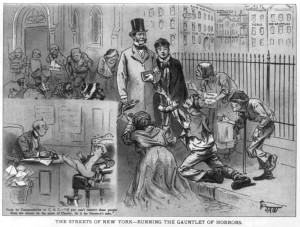Romney’s Inexplicable Debate Fibs
Mitt Romney’s generally strong debate performance was marred by two small and inexplicable shadings of fact — moments that left reporters, rivals, and allies shaking their heads and wondering why he he couldn’t just give a straight and obvious answer to relatively trivial questions.
The first lie was that he had dropped out of politics and gone back into business in 2006, when he left the governor’s office, when in fact he ran for President. In another obvious fib, he at first claimed he hadn’t seen a particular campaign ad, and then seconds later he described the ad.
So I did some googling, and there are all kinds of articles on the Web describing pathological liar as someone who lies habitually, or reflexively, because he just prefers to. Here’s one:
A compulsive liar is defined as someone who lies out of habit. Lying is their normal and reflexive way of responding to questions. Compulsive liars bend the truth about everything, large and small. For a compulsive liar, telling the truth is very awkward and uncomfortable while lying feels right. Compulsive lying is usually thought to develop in early childhood, due to being placed in an environment where lying was necessary. For the most part, compulsive liars are not overly manipulative and cunning (unlike sociopaths), rather they simply lie out of habit – an automatic response which is hard to break and one that takes its toll on a relationship (see, how to cope with a compulsive liar).
There are several kinds of pathological liars, and IMO Romney sounds more like a habitual liar than anything else:
Habitual pathological lying is, as the name suggest, habitual. Habitual liar lies so frequently, that it becomes a habit, as a result, he/she puts very little effort in giving a thought about what the output is going to be, nor does he/she care much to process whether it’s a lie or not, it’s simply a reflex & very often can be completely unnecessary or even opposite to his/her own needs. If he/she stops & thinks about it, he/she knows clearly it’s a lie.
Now he’s going around telling audience he knows what it feels like to be afraid of losing a job. Huh?
There’s something seriously wrong with this guy.


